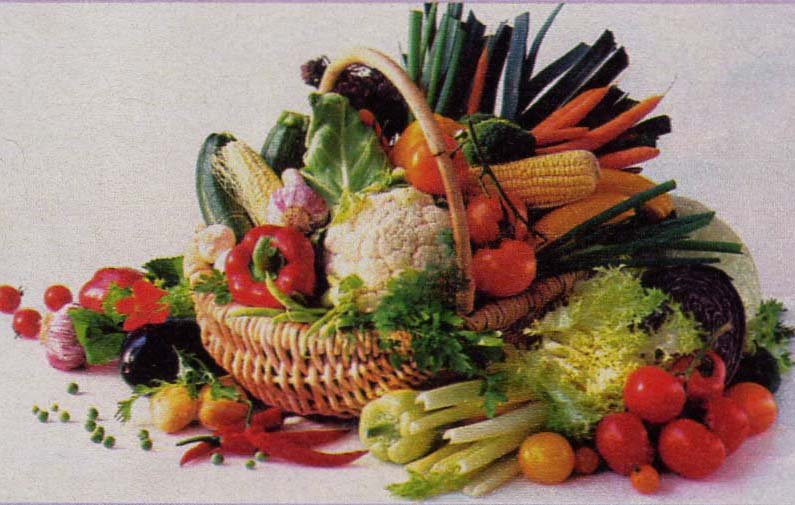Tip of the Month - February 2024
Protecting Your Immune System
Given that these times are extremely insecure and turbulent for general society and, of course, athletes of all ages and all levels. Your immune system works hard to keep you healthy. After all, it's in charge of fighting harmful germs, controlling disease, and recognizing dangerous substances. Genetics can play a big role in how the immune system works, but lifestyle factors such as physical activity, sports and training, and stress levels matter as well.
A well-balanced nutrition plan is generally associated with optimal immune function. This includes plenty of fruits, vegetables, whole grains, and lean protein, but are there specific options worth calling out? Nutritionists cite some foods like mushrooms, oysters, and fatty (Omega 3) fish, which may not be the ‘taste bug’ of younger athletes. However, some fish brands may be suitable. The issue is that many younger children are addicted to fast and fatty food and need to be educated on the value and benefits for their health. Personally, health, nutrition, and lifestyle education ought to be part of a quality school curriculum! According to registered dietitians, there are seven foods for a strong and healthy immune system:
Leafy Greens
In addition to being deliciously versatile, leafy greens like various green salads, spinach, kale, and bok choy are immune-supporting nutrients. They include vitamins C and A, according to registered dietitian Roxana Ehsani, MS, RD, CSSD, LDN. Vitamin C is required by white blood cells (i.e., immune cells) to properly find and destroy harmful germs, while vitamin A regulates the immune response. Both nutrients are also potent antioxidants, meaning they protect healthy cells by reducing oxidative stress.
To get your fill of leafy greens, aim for 2 to 3 cups per day, according to Ehsani. Adding a handful of greens to your go-to recipes, such as sandwiches, smoothies, omelets, soups, or chili.
Mushrooms ( Yikes! … Younger ones will declare… but they are very healthy)
Mushrooms are unique in that they're one of the few foods that contain vitamin D, explains Ehsani. It's all due to UV light or sunlight exposure, which increases vitamin D levels in the fungi. This is noteworthy because "your immune system needs vitamin D to fight off invading bacteria and viruses," according to Ehsani. "Mushrooms also contain selenium, which works as an antioxidant that protects the body from infection, reduces inflammation, and helps support immunity."
I usually used bacon bits and mixed them with sauteed mushrooms and poached eggs.
Eggs, by the way, are packed with plenty of nutrients that support immunity. But Eggland’s Best eggs contain 10 times the vitamin E, six times the vitamin D, and twice the vitamin B12 and omega-3 fatty acids compared to ordinary eggs – all of which are needed to maintain a healthy immune system.
I usually combine poached eggs with red/green peppers, mushrooms and any other veggie in the fridge.
Berries
I love any kind of berries, depending on the season, and combine various sorts for a personal fruit cocktail. Whether blended in smoothies or tossed in salads, berries are some of the best foods to eat for a strong immune system. This includes all types of berries, from juicy blueberries to sweet-tart raspberries. "Berries have a ton of antioxidants and vitamin C," explains Vanessa Rissetto, MS, RD, CDN, and the co-founder of Culina Health. These nutrients can help quell oxidative stress, reduce inflammation, and repair skin wounds, a mechanism that keeps harmful germs out of the body. Berries also benefit the gut (and, therefore, the immune system) thanks to their fiber and prebiotics, which are compounds that feed good gut bacteria.
Fermented Foods
Fermented foods contain probiotics, the good bacteria that live in the gut, so the bad bacteria don't take over. This keeps the gut microbiome in balance, making it easier to efficiently manage the immune system. "Try to incorporate one source of probiotics per day, such as 1 cup of yogurt at breakfast or lunch, or use 1 cup of kefir to make [a] smoothie," says Ehsani. You could also add kimchi to dishes like sandwiches, paninis, or stir-fries, she says.
Note: Kimchi is a traditional Korean dish whose components can vary but usually include some combination of vegetables, garlic, ginger, chili peppers, salt, and fish sauce. The mix is pickled and fermented, which was originally a way to preserve the vegetables for the winter months. Cabbage is the most common vegetable used to make kimchi although carrots, radish, cucumber, and scallions are also frequently used, too. There are hundreds of kimchi recipes that vary depending on the region and season in which they are produced, and it's very easy to make it a vegan dish by keeping all the ingredients plant-based.
Sweet Potatoes (Relate them to Thanksgiving or Christmas dinners for younger children)
This potato is excellent for immunity due to its high content of beta-carotene, a compound that turns into immune-supporting vitamin A in the body. What's more, beta-carotene is an antioxidant itself, meaning it protects the body against oxidative stress and inflammation caused by free radicals, according to Ehsani. Sweet potatoes also offer vitamin C and fiber, a nutrient needed to keep good gut bacteria in tip-top shape. This is key because the gut regulates immunity—and if your gut is happy, so is your immune system. They can be fried or baked with stuffing or other delicate ways.
Oysters ( Well, I love them … Others hate these slimy things)
When thinking of the best foods for immunity, oysters probably don't come to mind, but this delicacy certainly fits the bill. Oysters are the top source of zinc, an essential mineral that supports healthy immune system function, says Ehsani. In fact, "a mild deficiency [of zinc] can slow down the activity of cells that work to protect the body from viruses and bacteria," she says. To get your fill of zinc, try frying oysters to crispy perfection or tucking into a creamy oyster stew or some of the sauces and dips that are available.
Fatty Fish
To keep your immune system in tip-top shape, try adding two servings of fatty fish to your weekly menu. (One serving is about 3 ounces, or ¾ cup of flaked fish, according to the American Heart Association.) Fatty fish is rich in omega-3 fatty acids, powerful anti-inflammatory fats that are beneficial for immunity, according to Rissetto. Specifically, omega-3 fats help immune cells travel to the site of infections and, once there, destroy harmful germs. Choose from fatty fish like salmon, anchovies, herring, sardines, bluefin tuna, and mackerel, just to name a few varieties. Personally, I like to eat fish 3x a week and love Lox on Bagels.
References:
Nunez, K. (2023, February 3), cited in M. Stewart ( 2024, February 27). The seven best foods for a strong and healthy immune system. Published by Martha Stewart/Health.com (2024, February 27). Retrieved February 27, 2024, from https://www.marthastewart.com/1542077/foods-healthy-immune-system
Pictures from Personal Nutrition Lecture.


